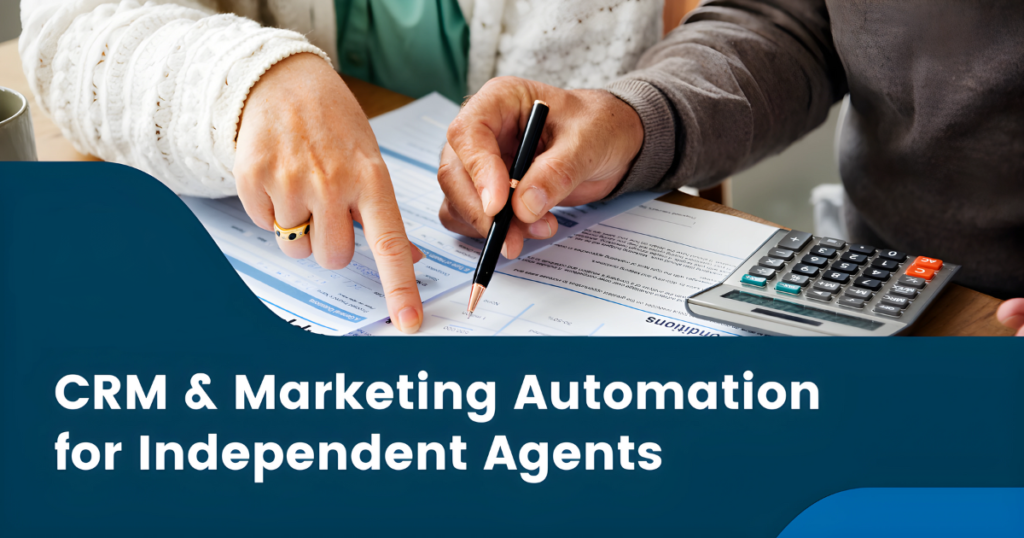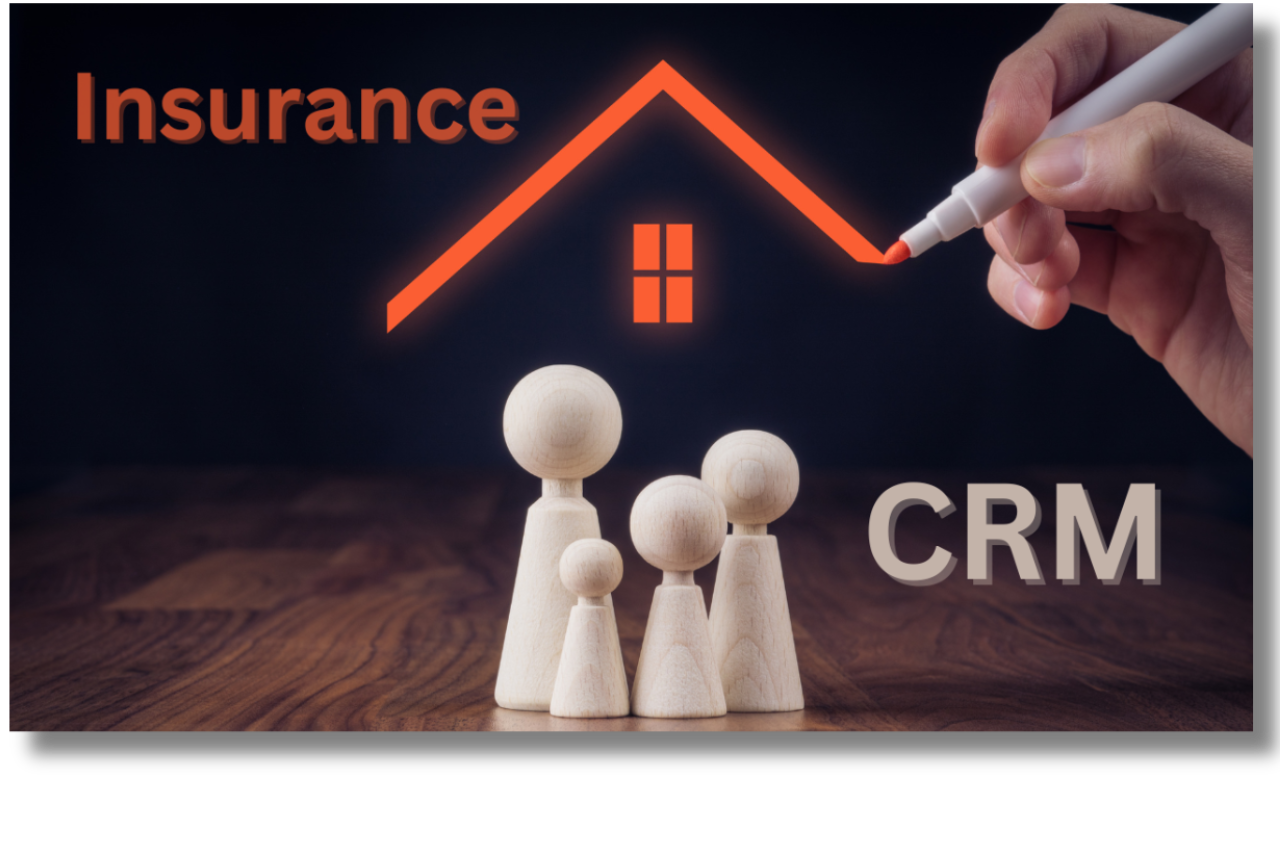Getting insured is an essential financial step, but consumers don’t just choose their providers based on price or coverage alone. In fact, 46% of consumers say that customer experience (CX) is the top factor when selecting an insurance provider. Yet, the insurance industry faces a CX challenge—42% of policyholders cite communication as their biggest issue when dealing with insurers.
Couple this with prolonged sales cycles and rising competition, and you have a problem. The solution? An insurance CRM (customer relationship management) platform.
In this guide, we’ll explore how an insurance CRM can help manage customer relationships, improve communication, and optimize business operations to set your agency apart from the competition.
What Is an Insurance CRM?
An insurance CRM is a platform that enables insurance companies to manage customer relationships, streamline processes, and improve CX. With a CRM system, you can:
- Manage inbound and outbound leads efficiently.
- Automate customer service interactions to ease workload.
- Personalize communication to enhance customer experience.
- Provide insurance agents with valuable insights to close more sales.
- Deliver an omnichannel experience across various platforms.
- Manage the entire sales pipeline effectively.
Why Insurance Agents Need CRM Software
Based on survey results, insurance agents must improve CX, and that’s where an insurance agency CRM is invaluable. With a CRM, agents can see all customer interactions on a single dashboard and respond promptly.
Additionally, agents can access detailed customer profiles and past interactions, enabling them to personalize communications and tailor offerings. In short, an insurance CRM gives agents the tools they need to better serve customers while managing multiple leads and clients efficiently.

Key Features & Benefits of an Insurance CRM
1. Centralized Customer Data
CRMs consolidate all customer communications—calls, emails, notes, and policy documents—into one unified database. This allows:
- Seamless customer history tracking
- Effortless information retrieval
- Enhanced personalization based on past interactions
With cloud-based CRMs, agents can access key customer details remotely, ensuring they can convert prospects even while on the move.
2. Sales Pipeline Management
CRMs like Act! provide an in-depth look into the sales funnel, helping agencies:
- Identify where leads drop off in the sales process.
- Use filters for location, sales stage, and policy type to optimize targeting.
- Increase conversions while reducing costs by prioritizing high-value leads.
3. Personalized Marketing Campaigns
Insurance CRMs support targeted marketing efforts by enabling:
- Customized email marketing campaigns
- Automated lead-nurturing workflows
- Landing pages and web forms to drive lead generation
By leveraging customer insights, insurers can reduce churn, increase upsells, and maximize lifetime value.
4. Workflow Automation
Automation reduces manual effort and improves efficiency. A CRM can:
- Send automated emails for renewals and policy expirations.
- Automate lead scoring to focus on high-potential prospects.
- Assign tasks automatically based on customer engagement.
These features enhance productivity, allowing sales teams to concentrate on high-impact activities.
5. Advanced Analytics & Reporting
The best insurance CRMs provide real-time insights into business performance, including:
- Revenue vs. costs
- Average time in each sales stage
- Reasons for lost deals
- Forecasted sales (by product and agent)
- Individual agent performance
Dashboards offer data-driven insights that help optimize sales strategies, improve retention, and boost revenue.
6. Task Prioritization & Reminders
An insurance CRM organizes tasks based on priority, ensuring agents:
- Never miss follow-ups or key appointments.
- Stay on track with notifications and alerts.
- Focus on high-value interactions that drive sales.
7. Seamless Integrations
CRMs integrate with various tools, including:
- Email and calendar apps for streamlined scheduling.
- Social media and messaging tools to improve outreach.
- Accounting and e-commerce platforms for enhanced operations.
This eliminates app-switching, ensuring a smooth workflow.
How to Choose the Right CRM for Your Insurance Agency
1. Define Your Needs & Budget
Identify the key features your agency requires and filter out solutions that don’t meet your needs. Then, set a realistic budget for your CRM investment.
2. Check Compatibility with Existing Tools
Your CRM should integrate seamlessly with your current tech stack—such as Google Workspace, Slack, or Microsoft 365—to ensure smooth business operations.
3. Look for Lead Management Features
A CRM should help track and manage leads effectively. Ensure it offers:
- Lead tracking and status updates
- Interaction history
- Follow-up reminders
4. Consider Automation Capabilities
Choose a CRM that provides marketing and sales automation, including:
- Email automation for campaigns and reminders
- Lead-scoring algorithms to prioritize prospects
- Automated task assignment
5. Scalability & Future Growth
As your agency grows, so will your CRM needs. A cloud-based CRM ensures that you can:
- Add more users as needed.
- Scale operations without data loss.
- Expand functionality with add-ons.
6. Robust Reporting & Analytics
Your CRM should provide in-depth analytics to help refine marketing and sales strategies. Look for real-time dashboards, predictive analytics, and advanced reporting.
7. Mobile Accessibility
Insurance agents need on-the-go access to customer data. Ensure your CRM has a dedicated mobile app (iOS and Android) with:
- Customer profiles
- Real-time sales insights
- Navigation and appointment tracking
Scale Your Insurance Agency with the Right CRM
In the insurance sector, customer experience is everything. The key to superior service? Timely and personalized interactions—which an insurance CRM makes easy.
A CRM helps agents understand customer needs, deliver better service, and close more deals. Additionally, automation features streamline processes while improving efficiency.
Act! CRM combines customer relationship management and marketing automation into one powerful platform designed for insurance agencies. Get started today with a free trial and experience the benefits firsthand!
For assistance setting up your CRM, contact us—we’ll help tailor the perfect solution for your business needs.
